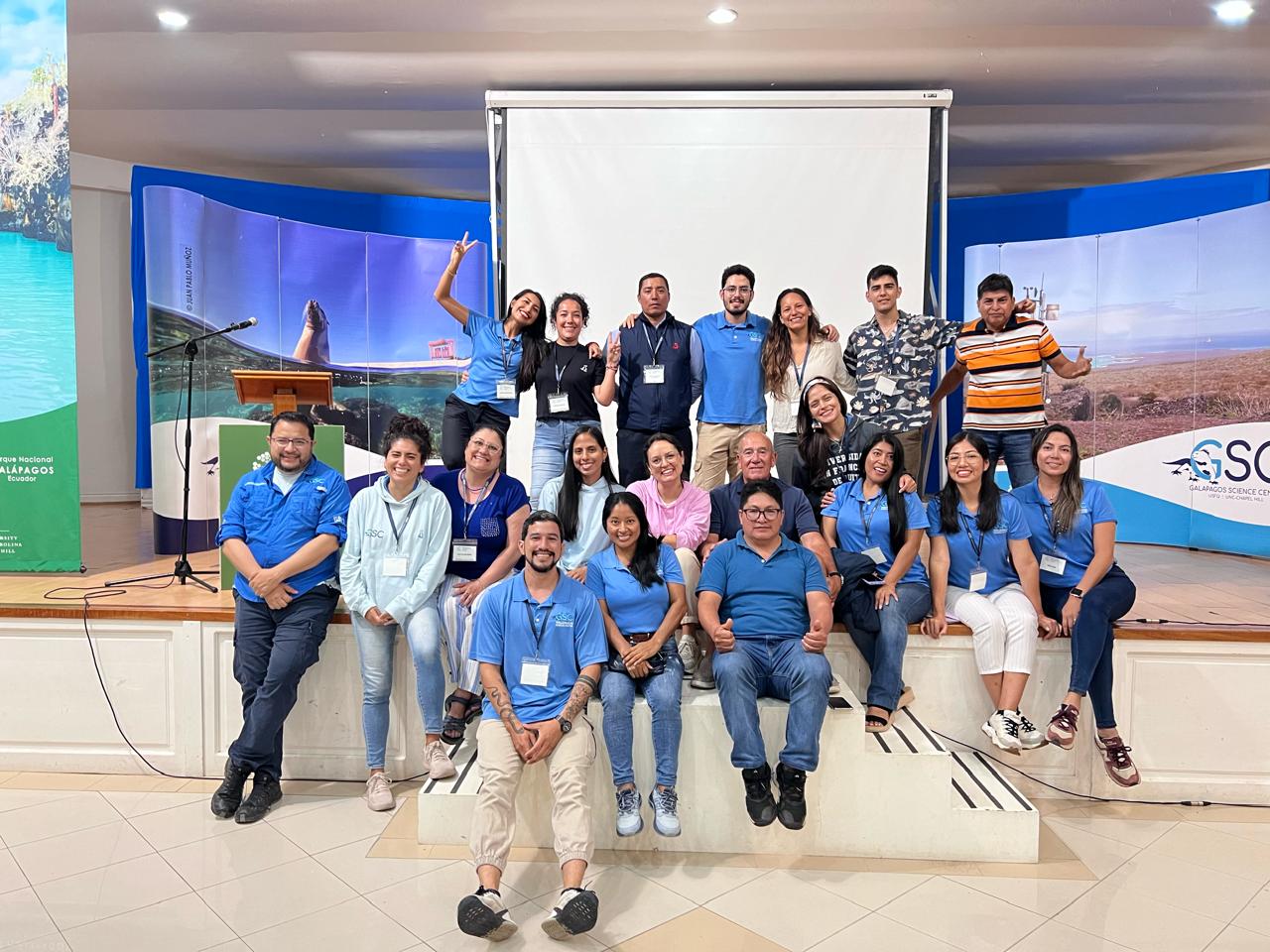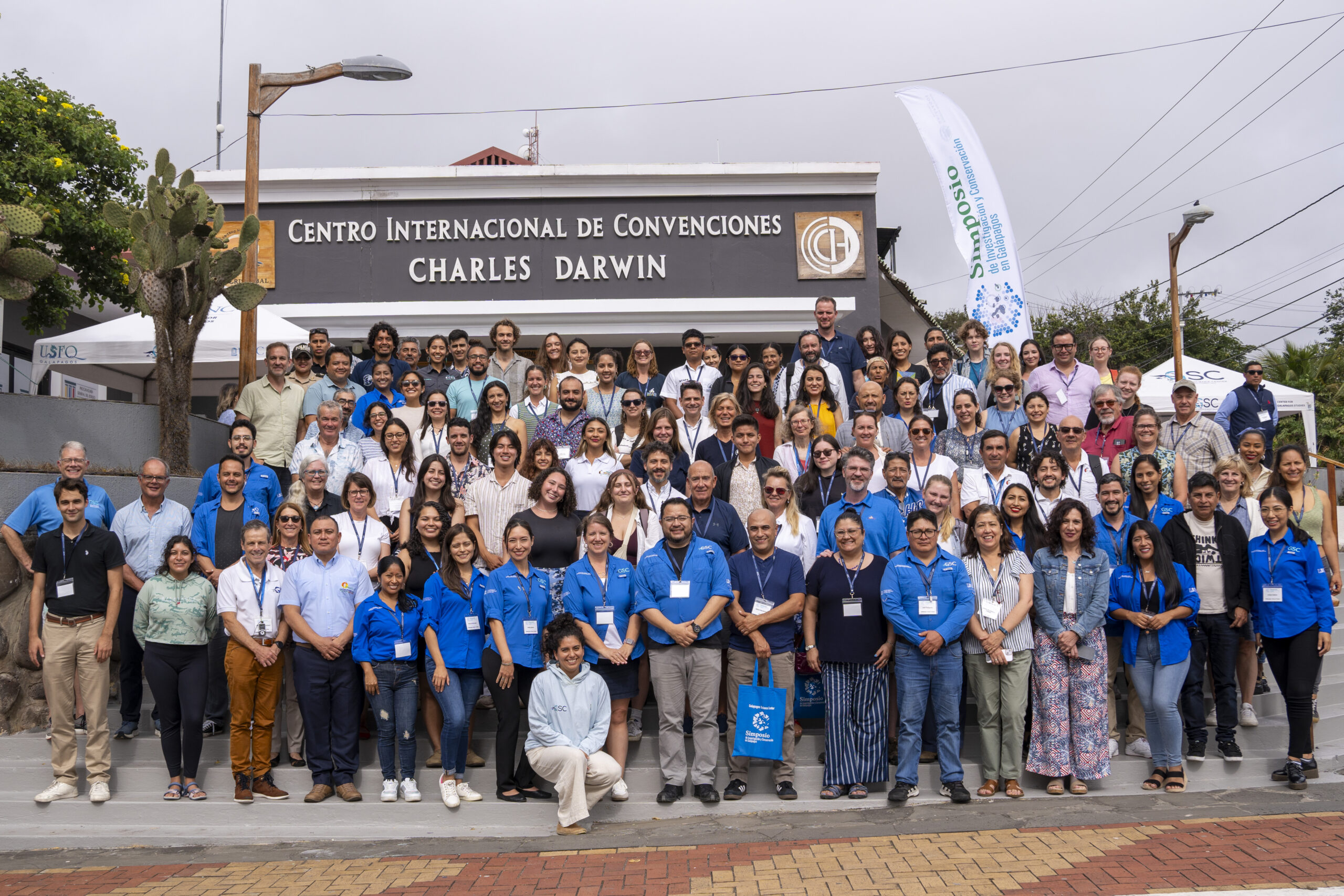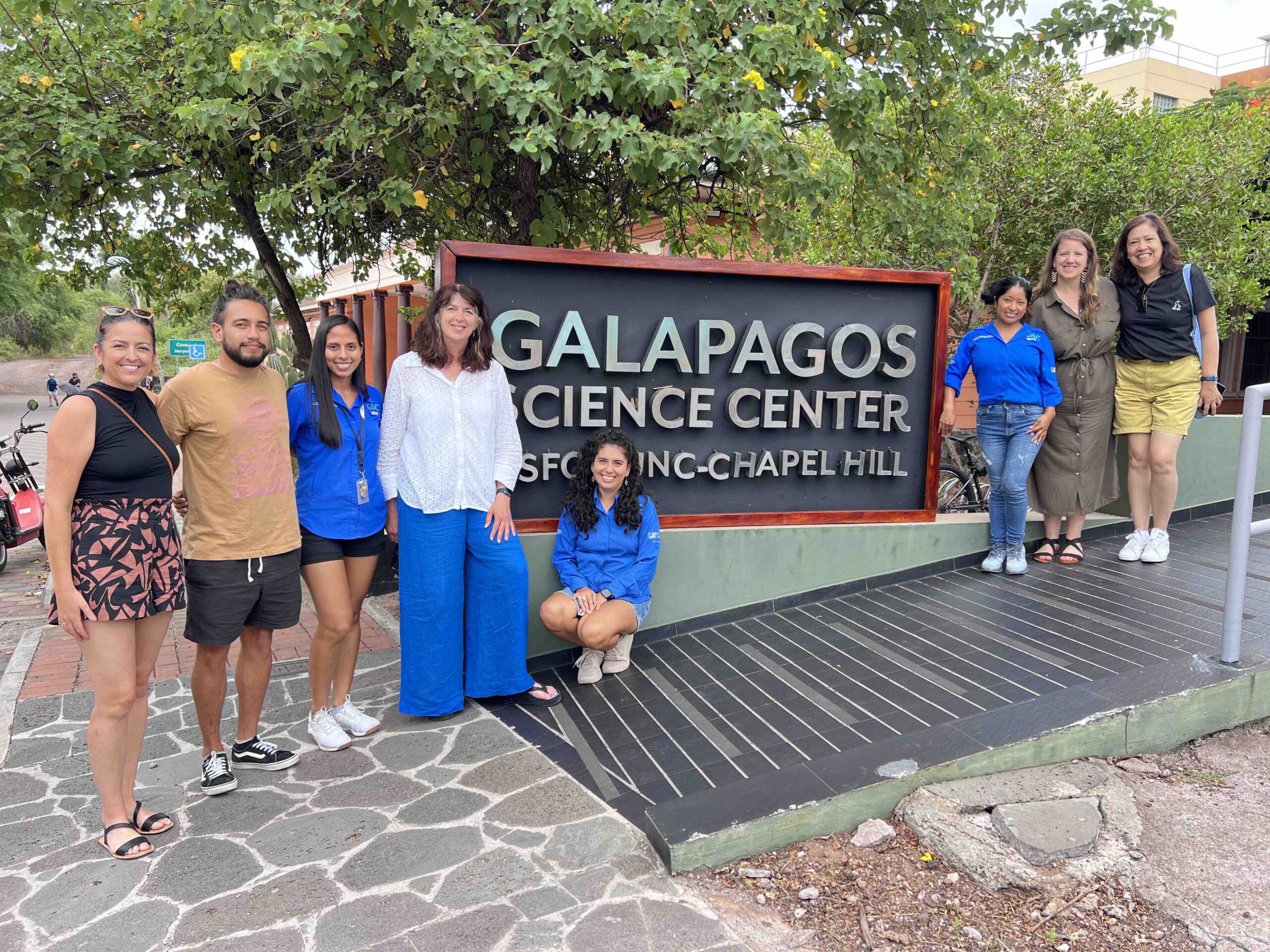Homero Paltán, Fátima Benítez y Carlos Mena, miembros del Instituto de Geografía de la Universidad San Francisco de Quito e investigadores del Galápagos Science Center, junto con miembros del Grupo de Investigación en Biodiversidad, Medio Ambiente y Salud de la Universidad de las Américas, se propusieron analizar los datos climatológicos existentes para crear una línea base de las condiciones climáticas actuales y futuras de las Islas Galápagos, en conjunto con un diagnóstico del cambio en la temperatura superficial del mar.
Estación meteorológica del GSC ubicada en la parte alta de San Cristóbal
A continuación, se detallan los principales hallazgos de este análisis:
- La época lluviosa en las islas está actualmente unos 20 días atrasada en comparación con un par de décadas atrás
- En las últimas décadas, las temperaturas de las islas han aumentado ya en 0.6oC
- A partir del año 2000, la temperatura superficial del mar ha aumentado en 1.2oC
- Para mediados de siglo, las temperaturas de las islas podrían aumentar hasta en 2.2oC
- Las tormentas y aguaceros podrían intensificarse en un futuro en las islas
Ante estos resultados, Paltán comenta que “quedan aún varias incertidumbres climáticas en las islas por lo cual es importante mejorar en la implementación de marcos de decisiones basados en incertidumbre y expandir la red de instrumentos que permitan registrar temperatura, niveles de agua, precipitaciones y otras variables hidrológicas ya que esto permitirá una mejor planificación de sectores clave como la agricultura, el turismo, el crecimiento poblacional, entre otros”

Los hallazgos de nuestros investigadores exponen la necesidad de comenzar a fomentar la resiliencia y a generar políticas que nos permitan adaptarnos al cambio climático y estar preparados para enfrentarlo.
Los análisis fueron realizados en base a proyecciones climáticas de varios modelos internacionales y en los registros hidrometeorológicos existentes sobre todo de las Islas Santa Cruz y San Cristóbal, y, también se incluyeron productos de repositorios internacionales climáticos y observaciones satélites.
Es así que, conocer las diferentes tendencias de cambio climático es de suma importancia, debido a que de ellas depende el deterioro o la conservación de los recursos marinos, la estabilidad de los ecosistemas, la disponibilidad de alimento y agua, la ocurrencia de desastres como inundaciones, sequías o aumento del nivel de mar, e incluso la proliferación de especies invasoras.






